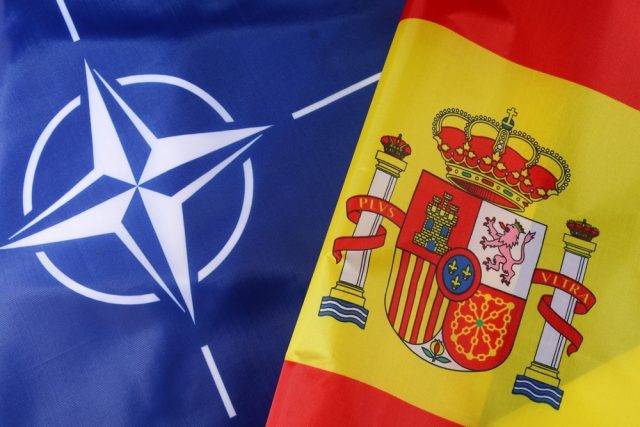
Spain’s Defence Dilemma
For years, Spain has lagged behind most of its European partners when it comes to defence spending—a fact now widely recognised, including in Washington. Earlier this year, former President Donald Trump accused Spain of relying too heavily on NATO’s protection, warning that allies who fail to invest adequately in their own security should be left to handle their own defence.
This is hardly the first time Trump has criticised Europe’s military commitments. During his presidency, he often chastised countries that fell short of NATO’s spending benchmarks. Yet in recent weeks, Spain has become his main target, with Trump calling Madrid’s refusal to adopt NATO’s new 5 percent goal “a very bad thing for NATO” and even hinting at possible economic retaliation.
“I’m very unhappy with Spain. They’re the only country that didn’t raise up their number to 5 per cent. Every other country in NATO raised up to 5 per cent.”
It is one of the sharpest rebukes Spain has received from Washington in years—marking a shift in tone that turns defence spending from a bureaucratic topic within NATO into a political fault line between allies.
Sánchez’s Climate Logic
In response, Prime Minister Pedro Sánchez has adopted an unusual interpretation of what “defence” entails. He argues that national resilience—against natural disasters, climate risks, and cyber threats—belongs within the scope of national security. His 2025 plan allocates around 13 percent of the armed forces’ budget to environmental and emergency management, treating them as integral to defence.
But Brussels sees it differently. The European Commission has cautioned that such “green” spending cannot count as military expenditure if Spain wishes to benefit from EU rearmament funds or exemptions under the SAFE programme. To many observers, Madrid’s approach looks less like innovation and more like creative bookkeeping.
From Expenditure to Investment
At the heart of this controversy lies a simple reality: defence is not just another line item in a national budget—it is an investment. Its returns may not be immediate, but they are concrete: deterrence, stability, credibility, and freedom. Defence outlays create the very preconditions for prosperity. Without safety, there are no thriving markets, no trade routes, and no welfare systems to sustain citizens.
Defence, in essence, is capital formation, not consumption. Investing in it boosts both security and industrial capacity. It stimulates innovation, develops skilled labour, and strengthens national autonomy. When well managed, every euro devoted to defence multiplies in value—economically, strategically, and politically.
Spain’s problem, therefore, is not only how much it spends, but how it understands the nature of defence. As long as Madrid treats it as a burden rather than an asset, any increase in the military budget will be seen as reluctant compliance, rather than what it should be: an affirmation of sovereignty and civilisation itself.
What We Are Defending
At this year’s Munich Security Conference, U.S. Vice President J. D. Vance offered a remark that received less attention than it deserved:
“The threat that worries me most for Europe isn’t Russia or China—it’s the threat from within: Europe’s retreat from some of its own foundational values, values it shares with the United States.”
His message was clear: the purpose of defence is not only to protect territory but to preserve a way of life. We defend ourselves not only against invasion, but against decline. Defence policy, then, is not a question of ideology but of collective survival.
The Case for Responsible Growth
No one is calling for reckless rearmament. What Spain needs is a credible, steady path forward—consistent annual increases tied to measurable outcomes such as readiness, deterrence, and modernisation. Such a roadmap would rebuild trust among allies, give predictability to the defence industry, and anchor Spain more firmly within Europe’s security system—reducing its dependence on Washington’s moods and restoring its standing in transatlantic affairs.
The cost of hesitation, however, is mounting. Trump’s threat of tariffs over Spain’s defence levels may seem excessive, yet it exposes a harsh truth: weakness is expensive. A nation that fails to invest in its own protection eventually pays through economic pressure, diplomatic marginalisation, or strategic vulnerability.
From Madrid’s perspective, the logic is unmistakable. Spain’s maritime frontier—from the Canary Islands to the Strait of Gibraltar—remains one of Europe’s most exposed and geopolitically sensitive zones. Safeguarding it is not only a national duty but a European one. Maritime security, migration control, and counter-smuggling operations require real capability, not rhetoric.
Strength as Confidence
Trump’s statements may sound abrasive, but they should be read as a warning rather than an insult. The age of comfort in European defence is over. The continent is entering a new era defined by revived power competition, unstable borders, and hybrid threats.
For Spain, this is no longer a question of percentages—it is a question of self-respect. A free nation must be willing to protect itself. A strong defence is not an act of aggression; it is an expression of confidence—a calm assertion that a country is sovereign, capable, and at peace precisely because it has the strength to remain so.
To invest in defence, then, is not to spend—it is to preserve. It is the most enduring investment any civilisation committed to survival can make.



 Subscribe
Subscribe